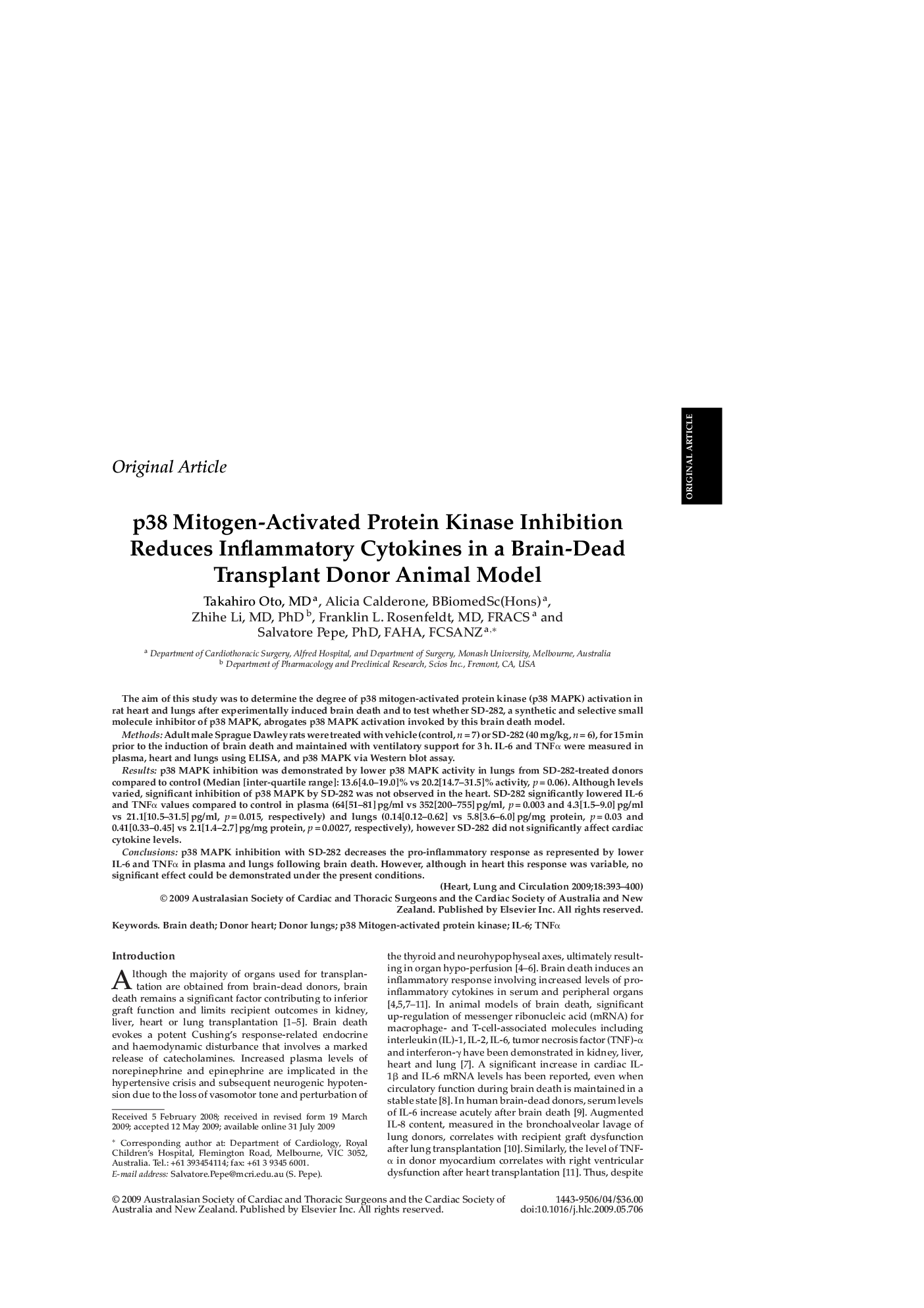| Article ID | Journal | Published Year | Pages | File Type |
|---|---|---|---|---|
| 2919500 | Heart, Lung and Circulation | 2009 | 8 Pages |
The aim of this study was to determine the degree of p38 mitogen-activated protein kinase (p38 MAPK) activation in rat heart and lungs after experimentally induced brain death and to test whether SD-282, a synthetic and selective small molecule inhibitor of p38 MAPK, abrogates p38 MAPK activation invoked by this brain death model.MethodsAdult male Sprague Dawley rats were treated with vehicle (control, n = 7) or SD-282 (40 mg/kg, n = 6), for 15 min prior to the induction of brain death and maintained with ventilatory support for 3 h. IL-6 and TNFα were measured in plasma, heart and lungs using ELISA, and p38 MAPK via Western blot assay.Resultsp38 MAPK inhibition was demonstrated by lower p38 MAPK activity in lungs from SD-282-treated donors compared to control (Median [inter-quartile range]: 13.6[4.0–19.0]% vs 20.2[14.7–31.5]% activity, p = 0.06). Although levels varied, significant inhibition of p38 MAPK by SD-282 was not observed in the heart. SD-282 significantly lowered IL-6 and TNFα values compared to control in plasma (64[51–81] pg/ml vs 352[200–755] pg/ml, p = 0.003 and 4.3[1.5–9.0] pg/ml vs 21.1[10.5–31.5] pg/ml, p = 0.015, respectively) and lungs (0.14[0.12–0.62] vs 5.8[3.6–6.0] pg/mg protein, p = 0.03 and 0.41[0.33–0.45] vs 2.1[1.4–2.7] pg/mg protein, p = 0.0027, respectively), however SD-282 did not significantly affect cardiac cytokine levels.Conclusionsp38 MAPK inhibition with SD-282 decreases the pro-inflammatory response as represented by lower IL-6 and TNFα in plasma and lungs following brain death. However, although in heart this response was variable, no significant effect could be demonstrated under the present conditions.
